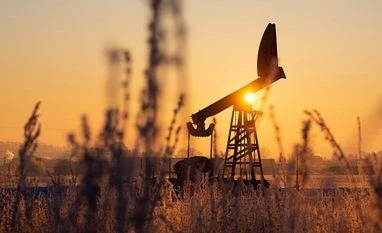Indian Oil Marketing Companies (OMCs) are confident that they would be able to secure discounts in the short-term for Russian crude, officials at several OMCs told Business Standard.
The price of Russian Urals-grade crude is trading close to the $60-limit, beyond which, sanctions will take hold. Since April, the majority of Russian oil sold to India has been on the Dubai benchmark, with an average discount level of $8-10 per barrel.
While the level of discounts has continuously shrunk this year as China has snapped up larger volumes of Russian crude, industry insiders say India has been promised discounts and Moscow would not change terms by a wide margin at a time when it is pressed for cash.
“The level of discounts has continued to change over the past year, but has been continuously higher than global market averages. Prices are discussed one deal at a time, but we are confident the discounts would continue," a senior official at an OMC said.
An official at the Ministry of Petroleum and Natural Gas echoed the same saying the discounts were here to stay, albeit at reduced levels.
The discount of Urals as compared to Brent had been as high as $20 per barrel or more, but has now fallen to as low as $5 per barrel in recent months for certain shipments, another official said.
Price cap
The share of Russian crude, which was just 0.2 per cent of the total crude import volume before Russia invaded Ukraine in February last year, touched a historic high of 42 per cent in May, government data showed.
India took 1.96 million barrels a day from Russia in May -- 15 per cent more than the previous high in April -- according to estimates by London-based commodity data analytics provider Vortexa, which tracks ship movements to estimate imports.
The flows are expected to be impacted if the price of Russian Urals crude breaches the G7 price cap of $60 per barrel. From December 5 last year, the United States and its allies have prohibited Western shipping and insurance companies from dealing in Russia crude sold at or above the cap.
While prices remain below the cap, they have consistently risen in 2023. The price averaged $52 a barrel at Russia’s Baltic Sea port of Primorsk in June, according to Argus data reported by Bloomberg.
In case prices move beyond the cap, transport costs will rise and the trade will become murkier as shipments will inevitably change hands on the high seas, analysts have warned.
Before the war in Ukraine, Indian refiners had bought Russian oil rarely due to the high freight costs involved.
However, India has not officially joined the price cap regime. Being the second-largest oil importer globally, New Delhi has been requested several times to join the regime. However, Washington DC had consistently taken a soft tone on the matter.
Other sellers watching
In the case of a major departure from existing prices by Moscow, Indian buyers would move to other sources as the trade remains price-sensitive, another official said. He hinted that west Asian sellers like Iraq were watching the situation keenly and may raise their discounts.
One of the historical sources of crude for India, Iraq was the biggest supplier in the first 10 months of FY23. From June onwards, Baghdad had last year undercut Russia by supplying a range of crude oils that on average cost $9 a barrel, less than the Russian variety. But imports from Russia had caught up by FY23 end as Moscow became more aggressive in offering discounts.
In March, Business Standard had reported that Iraq had reached out to refiners with offers to open discussions on what level of discounts would be needed to lure them back.
Even without the price argument, the government is of the opinion that a stable supply of crude should be established from outside the west Asian region.
STATUS QUO EXPECTED
Moscow not expected to change discounts policy drastically
OMCs buying Russian crude oil on Dubai benchmark
Russian Urals grade crude oil trading near G7 price cap levels
Transport costs to rise if cap is breached
West Asian sellers like Iraq may also up discounts
Unlock 30+ premium stories daily hand-picked by our editors, across devices on browser and app.
Pick your 5 favourite companies, get a daily email with all news updates on them.
Full access to our intuitive epaper - clip, save, share articles from any device; newspaper archives from 2006.
Preferential invites to Business Standard events.
Curated newsletters on markets, personal finance, policy & politics, start-ups, technology, and more.
)